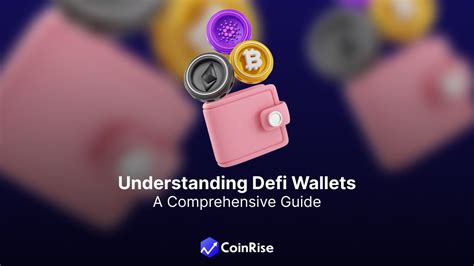Understanding Ethereum Wallets: Your Gateway to the Decentralized World

`markdown
Preview: Navigating the world of cryptocurrencies can seem daunting, especially when it comes to securing your digital assets. This comprehensive guide breaks down Ethereum wallets, explaining what they are, the different types available, and how to choose the right one for your needs. Learn how to keep your Ether and ERC-20 tokens safe and accessible.
What is an Ethereum Wallet?
An Ethereum wallet is a digital tool that allows you to interact with the Ethereum blockchain. It's not like a physical wallet that holds cash. Instead, it securely stores your private keys, which are essential for authorizing transactions and accessing your Ether (ETH) and other ERC-20 tokens. Think of it as the key to your crypto vault, not the vault itself.
Think of your Ethereum address as your bank account number, and your private key as your secret PIN. Sharing your address allows others to send you ETH, but your private key must be kept secret to prevent unauthorized access to your funds.
Types of Ethereum Wallets
There are various types of Ethereum wallets, each with its own security features, convenience level, and cost:
- Hardware Wallets (Cold Storage): These are physical devices that store your private keys offline, offering the highest level of security. Think of brands like Ledger and Trezor.
- Software Wallets (Hot Wallets): These are applications installed on your computer or smartphone.
- Browser Extension Wallets: These are browser extensions that allow you to interact with decentralized applications (dApps) directly from your browser. MetaMask is a popular example.
- Paper Wallets: These involve printing your private keys and public addresses onto a piece of paper.
- Security: How important is security to you? If you're holding a significant amount of ETH, a hardware wallet might be the best choice.
- Convenience: How often do you need to access your ETH? A mobile wallet is convenient for daily use, while a paper wallet is better suited for long-term storage.
- Cost: Hardware wallets require a purchase, while software wallets are typically free.
- Technical Expertise: Some wallets are more user-friendly than others. Choose a wallet that matches your technical skills.
- dApp Compatibility: If you plan to interact with dApps, a browser extension wallet like MetaMask is essential.
- Keep your private key secret: Never share your private key with anyone. Store it in a safe and secure location.
- Use a strong password: Protect your wallet with a strong, unique password.
- Enable two-factor authentication (2FA): Add an extra layer of security to your wallet.
- Backup your wallet: Create a backup of your wallet's seed phrase or private key. Store the backup in a safe place, separate from your main device.
- Be wary of phishing scams: Be cautious of emails or websites that ask for your private key or personal information. Always verify the legitimacy of any website before entering your credentials.
- Keep your software updated: Ensure your wallet software and operating system are up to date with the latest security patches.
- Increased Security: More sophisticated security features are being implemented, such as multi-signature wallets and hardware wallet integrations.
- User-Friendly Interfaces: Wallets are becoming easier to use, even for beginners.
- dApp Integration: Wallets are becoming more deeply integrated with dApps, allowing users to seamlessly interact with decentralized applications.
- Multi-Chain Support: Some wallets now support multiple blockchains, allowing users to manage different cryptocurrencies in one place.
Pros:* Excellent security, resistant to hacking.
Cons:* More expensive, requires physical access.
Desktop Wallets:* Installed on your computer, offering a balance of security and convenience. Examples include Exodus and Atomic Wallet.
Pros:* Convenient for frequent use, typically free.
Cons:* Vulnerable to malware if your computer is compromised.
Mobile Wallets:* Installed on your smartphone, providing on-the-go access to your ETH. Examples include Trust Wallet and MetaMask (mobile).
Pros:* Highly convenient, accessible anywhere with an internet connection.
Cons:* Risk of loss or theft of your phone.
Web Wallets:* Accessed through a web browser. Examples include MyEtherWallet.
Pros:* Easy to use, accessible from any device.
Cons:* Security depends on the website's security measures.
Pros:* Seamless integration with dApps, convenient for interacting with DeFi platforms.
Cons:* Security relies on the security of your browser and the extension itself.
Pros:* Completely offline, resistant to hacking (if stored securely).
Cons:* Inconvenient to use, susceptible to damage or loss of the paper.
Choosing the Right Ethereum Wallet
Selecting the best Ethereum wallet depends on your individual needs and priorities. Consider the following factors:
Securing Your Ethereum Wallet
Regardless of the type of Ethereum wallet you choose, security is paramount. Here are some essential security practices:
Ethereum Wallet Trends and Future
The Ethereum wallet landscape is constantly evolving. We're seeing trends towards:
The future of Ethereum wallets will likely involve even greater security, enhanced usability, and seamless integration with the growing ecosystem of decentralized applications.
Conclusion
Choosing the right Ethereum wallet is crucial for safely managing your Ether and ERC-20 tokens. By understanding the different types of wallets, their security features, and the latest trends, you can select a wallet that meets your needs and protects your digital assets. Remember, security is your top priority!
Q&A About Ethereum Wallets
Q: What is the safest type of Ethereum wallet?
A: Hardware wallets are generally considered the safest, as they store your private keys offline.
Q: Are Ethereum wallets free?
A: Software Ethereum wallets are typically free, while hardware wallets require a purchase.
Q: Can I use the same Ethereum wallet for other cryptocurrencies?
A: Some Ethereum wallets support multiple cryptocurrencies, but it's essential to check compatibility before using a wallet for a specific cryptocurrency.
Q: What is a seed phrase and why is it important?
A: A seed phrase is a series of words that allows you to recover your Ethereum wallet if you lose access to your device or forget your password. It's crucial to keep your seed phrase safe and secure.
Q: What is the difference between an Ethereum address and a private key?
A: Your Ethereum address is like your bank account number, while your private key is like your PIN. Your address can be shared, but your private key must be kept secret.
`





